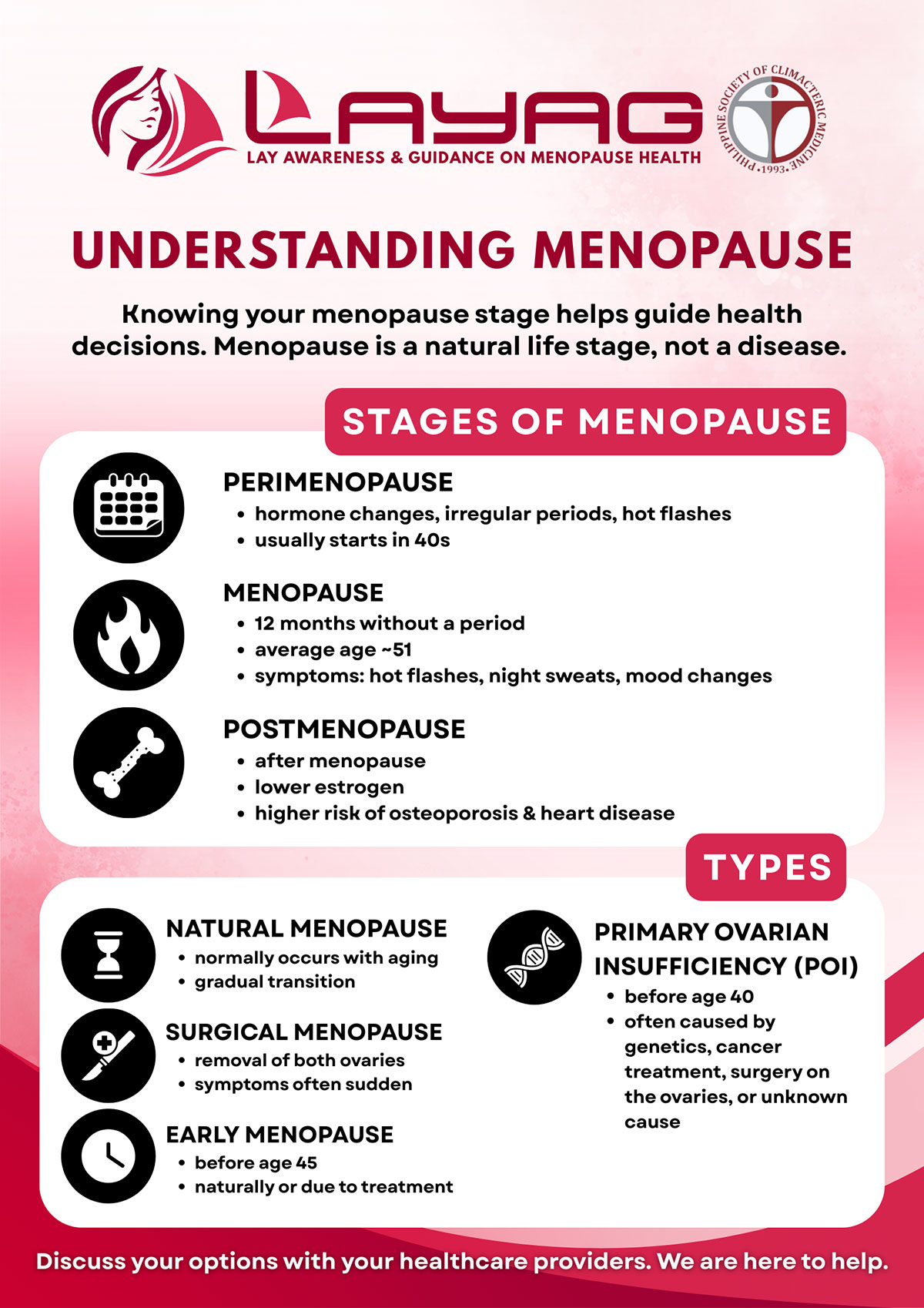Understanding Menopause: What You Need to Know
Menopause is a natural stage in life that marks the end of your menstrual cycles. It’s a gradual process, and knowing the stages and types can help you prepare and take care of your health.
Stages of Menopause
- Perimenopause: This is the transition period, usually starting in your 40s, when hormone levels begin to fluctuate. You may notice irregular periods, hot flashes, mood changes, and sleep disturbances. Perimenopause can last several years before your final period.
- Menopause: Menopause is officially diagnosed when you have gone 12 consecutive months without a period (not due to pregnancy or another medical cause). The average age is around 51. Symptoms may include hot flashes, night sweats, vaginal dryness, and changes in mood or memory.
- Postmenopause: This is the time after menopause. Symptoms may lessen for some women, but the drop in estrogen can increase the risk of osteoporosis and heart disease. Regular check-ups, a healthy diet, and exercise become even more important.
Types of Menopause
- Natural Menopause: Occurs on its own as part of aging.
- Surgical Menopause: Happens if both ovaries are removed during surgery, often leading to sudden and more intense symptoms.
- Early Menopause: Menopause that occurs before age 45, whether naturally or due to medical treatment.
- Primary Ovarian Insufficiency (POI): When the ovaries stop working normally before age 40, often due to genetic, autoimmune, or unknown causes.
Why This Matters
Understanding which stage or type of menopause you’re in can guide your health choices. Whether menopause comes naturally or earlier than expected, it’s important to talk with your healthcare provider about managing symptoms, protecting your bones and heart, and maintaining quality of life.
Menopause is not an illness – it’s a new phase of life. With the right care and knowledge, you can continue to live a healthy, vibrant life.



